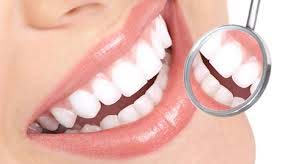Advice for Pregnant Women - Tips For Pregnant Women
How to organize your life during pregnancy?
- Rest During Pregnancy:
- Any pregnant female should sleep daily for 8 consecutive hours.
- She should also have a nap @ midday.
- Avoid squatting and putting pressure on the abdomen as this can lead to back and abdominal pain.
- Avoid sitting and standing improperly and holding heavy materials. Bending your knees is essential while you are holding things
Appropriate Clothes for Pregnant Women:
- It is best to wear attractive and comfortable clothes.
- Multiparas tend to have a larger waist than primigravida.

- At around 5 months, the lower abdomen will begin to enlarge and clothing will feel too small to you.
- When you buy new pregnancy clothes, it should be easy to keep clean and feel comfortable. Be aware that your body weight will increase as pregnancy advances.
- Comfortable clothing is important but make choices that make you feel good about yourself.
- You may gain 10-20 kg during pregnancy and the upper part of your body will be 10 cm larger than before. By the last month, your abdominal circumference will be around 1meter more or less, depending on your normal body structure.
- Wide sleeves can be helpful so that you can extend your arms easily.
- Cotton made clothes are preferred as they absorb humidity and provide good ventilation.
You may choose polyester made clothes as they cover your mummy bump easily. 
- Your underwear should be made of cotton.
- You should wear low heel shoes, be sure that they are not slippery as high heel shoes may cause back pain and legs cramps.
- Soon, you will also have difficulty seeing where to put your feet as your tummy will get in the way. The higher the shoe heel, the greater the chance of losing your balance. You do not want to fall when you are pregnant. It can injury your baby. In worst cases, it can lead to losing your baby.
- You can walk and do your daily home duties but avoid lifting or pushing heavy objects, or doing aggressive exercises. Be gentle with yourself.
- You can learn to do the appropriate pregnancy and post-partum exercises. We have approved exercises available here on our Site.
Diet during pregnancy:
- You do not need to eat for two. Instead, you need a healthy, balanced diet which contains all the necessary vitamins. Avoid fatty, spicy food, decrease the consumption of tea, cocoa, and coffee.

- Concentrate on eating diary product such as eggs, cheese, meat, birds, and fish. Also, eat vegetables, especially leafy, green ones and fruits.
- If you are overweight you need to decrease consumption of rice, potatoes, and sweets.
- You need to eat 6 small meals per day, which is better than 3 meals/day.
- You can have intercourse during pregnancy. However, if you have a history of abortion or preterm labour or have abdominal pain intercourse should be avoided.
- In the last 4 months of pregnancy, you need to avoid intercourse as it will induce uterine contractions, rupture of membranes, vaginal infection or vaginal bleeding.
- Also, intercourse may increase pressure in the uterus which may increase fetal heart rate. So, try to avoid positions that cause pressure on the abdomen that can effect your fetus.
Skin Care during pregnancy:
- You may notice some skin changes as striae over your belly, breast, thighs, buttock, and freckles over your face.
- You may notice darkening over the nose or eyebrows. You may prevent these by eating a high protein diet and taking vitamins, especially vitamin B2, vitamin C, as in vegetables, mussels, Oysters, beans, apples, oranges, lemons, etc…
- The fullness of the face may cause wrinkles in the skin, so try to massage your face with a small amount of moisturizing cream.
- As your skin becomes more sensitive during pregnancy, do not change your skin care product. Try to use bright color lipstick and make up to make you feel good about yourself.
- Some obstetricians advise that you massage your belly with olive oil to alleviate stretch marks and wrinkles.
Breast care during Pregnancy:
- Use a high quality bra that elevates your breast properly without being too tight or uncomfortable.
- Clean your nipples with warm water. Avoid soap. Massage them using olive oil, starting from the 5th month of pregnancy. You may also use cocoa butter or lanolin. You can use breast suction before cleaning and doing breast massage, 6 weeks prior to delivery.
- You can also do a massage to open your milk canal by compressing the areola between your index and thumb to ejaculate milk, to avoid breast engorgement and post-partum pyrexia which occurs after delivery.
Gums and Teeth Care during Pregnancy: 
- Clean your teeth after each meal and before going to bed.
- Consult your dentist if you have a problem with your teeth.
Changes and Complications during Pregnancy:
Beast changes during Pregnancy:
- Your breast will be soft during early pregnancy, then they will enlarge. The areola will be darker and have protruding glands which will make the nipple protrude more, anteriorly.
- Once the milk canal forms, colostrum starts to form and will be ejaculated when you do breast massage.
- After 4 months of pregnancy, you will need a larger bra.
Cleaning your breasts and massaging the nipples prevents nipple cracks, makes them tighter.
Back pain during Pregnancy:
- As pregnancy advances, and belly continues to enlarge, it will press on your back. You will need to bend your back in order to balance the enlarged uterus.
- Many women complain of back pain during pregnancy, but it will decrease when lying down and resting. But, if you do not feel relief, this may be due to compression on a nerve, or due to disc prolapse. If this occurs, you need to consult your doctor.
During pregnancy, bowel motility decreases due to muscle relaxation, but this will lead to anal fissure, or possibly, rectal prolapse hemorrhoids.
To maintain bowel motility, you need to eat fruits and vegetables and drink lots of water.
Numbness in the hands and feet during Pregnancy:
- Although numbness increases during pregnancy, its cause is still unknown. But, some say that it may be due to bending the back, not only in the lower back but also in the neck and upper back. It may also be due to hormonal changes. Because of all of this, the upper limb nerves are pulled upward and this will cause numbness and cramps.
- After delivery, all of these will disappear. But if they persist you should consult your doctor.
Nausea during pregnancy:
- The cause is unknown, but it may be due to hormonal changes, especially progesterone.
- You need to avoid fried food, fatty food or anything that could make you nauseous.
- Try lying in bed for a short while after you wake up. Eat small, frequent meals.
- You may need to take some medications to decrease these symptoms. They should normally decrease on their own after the 10th week of pregnancy and disappear totally after the 14th week of pregnancy.
Normal vaginal delivery video | Caesarean section video
Carpel tunnel syndrome during pregnancy:
- In this syndrome, you may suffer from wrist pain and numbness, which are due to the increase in tunnel pressure as a result of joint swelling. This will compress the nerves that pass through the tunnel, especially the median nerve, and this will lead to hand numbness. It is worst in the morning and before moving your wrist. It disappears after delivery. So, when you move your wrist it will make the joint more elastic. Treatment will be with an analgesic ointment, or a diuretic, in order to decrease joint swelling and pressure on the joint.
- Also, this symptom may be due to vitamin B12 deficiency. Treatment will be by B12 injections.
Joint pain during pregnancy:
During pregnancy, some physiological changes occur in the woman’s body causing loosening of the cartilage in addition to an increase of fluid in the joints. This can cause an increase in the range of movement, which may lead to joint pain.
- As the pregnancy advances, the uterus is heavier. The curvature of the back increases, and the pelvic joints loosen. All of these lead to pressure on the muscles and tendons, which lead to back pain.
- Pregnant women need 28gm of calcium for bone formation, 25gm in the last trimester. If there is a decrease in calcium level in your blood, this will lead to loosening of the joints and more bone and joint pain. This will occur with the lactating woman, who has a deficiency of calcium in her diet.
- This affects 1/3 – 1/2 of all pregnant women due to gastric juice regurgitation, upward, to the esophagus. This is due to gastroesophagial sphincter relaxation, working as a valve, due to the increase of pressure inside the abdomen, or due to herniation of the esophagus above the diaphragm. This will disappear spontaneously after delivery.
- To treat heart burn, you should avoid bending forward and squatting. You should put a pillow under your back so that the upper part of your body is above the level of your lower abdomen, while sleeping.
- Avoid eating large meals. Instead, eat smaller, more frequent meals.
- Avoid spicy food.
- You can also use antacid medications.
- Anemia is diagnosed during pregnancy if hemoglobin drops below 10mg/dl. This effects 15% of all pregnant women.
- As pregnancy advances hemoglobin level, red blood cell count will drop further, due to deficiency in iron intake as compared to iron consumption. This occurs due to the increase in metabolic rate in the mother and fetus.
- Types of anemia, aplastic anemia, megaloblastic anemia, Iron deficiency anemia which is the most common type of anemia.
- Anemia will affect the growth of the fetus and can cause intrapartum complications.
- It is necessary to monitor hemoglobin level in the 1st trimester of pregnancy in order to give the mother the appropriate dose of ferrous supplements or transfuse her with blood, in severe cases.
Spontaneous Miscarriage:
- Spontaneous Miscarriage is defined as fetal loss before 20 weeks of gestation (before fetal viability) or fetal loss of less than 500mg fetus.
- Its incidence is 10-15% of pregnant women. Its cause is a bad quality oocyte or sperm, so that the embryo can’t continue pregnancy. Some maternal diseases may cause spontaneous Abortion:
Maternal diabetes, maternal hypothyroidism, cervical incompetence, psychological and physiological stress.
- Recurrent abortion is defined as, if the woman aborts more than 3 consecutive times.
- Around 20-30% of women who aborted once previously, will abort their current pregnancy.
But, if the woman has had recurrent abortions, this percentage may increase to 30-50%. The cause for this is anatomic or physiological problems in the mother.
- Around 70% of abortions occur in the 1st trimester of pregnancy.
- The danger of recurrent abortion is when the pregnancy advances, so you may need cervical cerclage to prevent abortion during 14-16 weeks (4 months).
Frequency of Urination during Pregnancy:
- You may experience an increase in frequency in urination in the 1st trimester of pregnancy. This occurs due to physiological pregnancy changes.
- Also, the enlarged uterus compresses on the bladder. This leads to increased urination and will continue for 4 months, then disappear, once the uterus is out of the pelvis and into the abdominal cavity. Then it recurs again once the head of the baby compresses on the bladder, in the last month.
- The frequency of urination increases, but there should not be any pain during urination. If you complain of pain, consult your doctor as it may be due to a urinary tract infection.
Vaginal discharge during pregnancy:
Vaginal discharge may increase during pregnancy due to increased cervical mucus secretion.
Sometimes, the increase in vaginal discharge may be due to candidal infection or trichmonas which occurs in 20-30% of pregnant women. Its discharge has thick, yellowish color and smelly. To treat this infection, you may use metronidazole.
If there is candidal infections, (which affect 20% of pregnant women), it will cause whitish vaginal discharge.
If symptoms are mild, no treatment is needed, but if severe, you may use mycostatin.
Vaginal bleeding during Pregnancy:
1- Bleeding in the 1st half of pregnancy:
- If you see any sign of bleeding, you should consult your doctor.
- There are many causes like cervical infection, and ectropion, or you may get pregnant on top of IUCD ectopic pregnancy, molar pregnancy.
- If bleeding is minimal, you can rest at home. Avoid intercourse for two weeks until bleeding stops.
- If bleeding is severe and leads to anemia, it is necessary to induce abortion.
- In cases of spontaneous abortion, you may complain of vaginal bleeding associated with regular uterine contraction. Also, this may occur with ectopic pregnancy.
- If uterine contractions continue to 6 hours, or cervix dilates or rupture of membranes occur, then you cannot keep your fetus.
2- Bleeding in the 2nd half of pregnancy:
- It may occur due to vaginal friability, or cancerous changes of the cervix, placental abruption or low lying placenta. In these cases, you may need emergency intervention in order to save your life, and your baby’s life.
- You may experience passage of a bloody show, which may indicate labour may start any time.
What about rubella?
- This disease is not dangerous if you are not pregnant.
- But, if a pregnant female is infected with rubella during her pregnancy, this will increase the risk of congenital abnormalities:
- In the 1st month of pregnancy 50%.
- In the 2nd month 25%.
- In the 3rd month 15%.
Congenital abnormalities include: congenital cataract, glaucoma, visual problem, hearing problem growth retardation.
- The most important thing is to diagnose the disease and consult your doctor.
Immunity and vaccination during pregnancy:
- Vaccinations depend on the vaccine or the immunity the patient has received before.
- The pregnant female could receive diphtheria, tetanus vaccine if she did not receive them in the last 10 years.
- Avoid polio vaccine unless it is endemic in the area, and ensure that the inactivated vaccine is used.
- Avoid mumps and rubella vaccine during pregnancy.
- Vaccine for typhoid fever should be given only if she is travelling to an endemic area, as the danger of the disease is more than the danger of the vaccine.
- Also, cholera vaccine should not be given unless you are travelling to an endemic area, or you have contacted an infected person.
- Rabies vaccine could be given as a protocol.
- Hepatitis vaccine can be given during pregnancy if she wants to travel to an endemic area, or have been in contact with an infected person.
Preterm labour:
- It is defined when a baby is born after 20 weeks, but before 36 weeks of pregnancy, or if the weight of the baby is less than 2500gm once delivered:
- At 20 weeks baby’s weight reachs 300 gm.
- At 24 weeks baby’s weight reachs 700 gm.
- At 28 weeks baby’s weight reachs 1000 gm.
- At 31 weeks baby’s weight reachs 1700 gm.
- At 35 weeks baby’s weight reachs 2500 gm.
- At 40 weeks baby’s weight reachs 3200 gm.
- Factors that may cause preterm labour are:
- Rupture of membrane.
- Cervical incompetence.
- Polyhydramnios.
- Abruptioplacenta.
- Pneumonia, pyelonephritis of the mother.
- Preterm babies need to be put in an incubator for a while.
Fetal movement:
- You may feel your fetus' first movement between 20-22 weeks of pregnancy, and it is called quickening.
- Some pregnant women cannot feel quickening until the 6th month of pregnancy.
- Some may confuse quickening with bowel movement or muscle cramps.
- Fetal movement may be an indicator of the health of the baby, but also a healthy baby will not move continuously, all through the day.
- You may induce fetal movement by tapping gently over your abdomen.
- If there is no fetal movement, this may be a pseudo pregnancy, an hydatiform mole, or may signify an intrauterine fetal death.
- If fetal movement has decreased, you should do a, “non stress test,” which measures the fetal heart beat. If there is a decrease in fetal movement, this may indicate a threat to the baby’s life. Give this problem special care.
What are the medications that may harm the baby?
- Some medication may pass the placenta to the fetus. Before taking any medication, it should be approved by the FDA:
- Medications that are absolutely harmful to the baby:
Alcohol, Antibiotics (Chloramphenicol, Chloroquine, Nitrofurantione, Novobiosin, Quinine, Streptomycin sulfa drug, and Tetracycline), anticancer drugs, testosterone, antithyroid drugs, cadmium, mercury, lead, oral contraceptive pills, nicotine, and warfarin. - Medications that are deadly dangerous:
Nitrous oxide, some Oral hypoglycemic agent, Chlorobromide, Tolbutamide, Tranquilizers, Reserpine, Vitamin A. - Medications that may be harmful:
Caffeine, valium, insulin, librium, meclizine, mebrobamit.
Dr Najeeb Layyous F.R.C.O.G
Consultant Obstetrician, Gynecologist and Infertility Specialist







 Pregnancy Due Date Calculator
Pregnancy Due Date Calculator
 Chinese Gender Predictor
Chinese Gender Predictor
 Ovulation Calculator
Ovulation Calculator
 IVF Due Date Calculator
IVF Due Date Calculator
